Rebuilding trust in global trade: The case for multilateralism in the Trump era

The global trading system, anchored by multilateralism and predictability for decades, has entered a phase of profound uncertainty. This crisis was hastened by the aggressive protectionist measures pursued under the administration of US President Donald Trump, which inflicted lasting damage on institutions such as the World Trade Organization (WTO) and undermined long-standing norms like non-discrimination and reciprocity. For developing countries and Least Developed Countries (LDCs), such as Bangladesh, the weakening of multilateral trade architecture presents deep structural challenges that threaten both economic security and development progress.
Trade liberalisation has been one of the defining achievements in the post-World War II era. Under the General Agreement on Tariffs and Trade (GATT) and later the WTO, countries committed to progressively reduce tariffs and remove trade barriers. Principles such as the most-favoured-nation (MFN) treatment and national treatment underpinned this cooperation, ensuring that countries treated all trade partners equally and foreign products no less favourably than domestic ones.
However, the Trump administration's unilateral tariffs on steel, aluminium, and Chinese goods marked a sharp departure, bypassing WTO mechanisms and challenging these foundational norms. Justified on national security grounds, the measures fuelled retaliatory responses and signalled a shift from multilateralism to power-driven bilateralism, disrupting global supply chains and undermining rule-based trade. The implications have been global in scope, with spillover effects that have rippled across borders and disrupted integrated supply chains.
Bangladesh's export-led economy, particularly its $40 billion ready-made garment (RMG) sector, has long benefited from multilateral trade rules and preferential schemes such as the Generalised System of Preferences (GSP). However, the recent wave of protectionism and unilateral tariffs exemplified by Trump's policies poses serious risks. Even if no direct tariffs on Bangladeshi goods were imposed, the country would still be vulnerable due to its deep integration in global value chains. For example, if Bangladesh exports fabric to a country assembling garments for the US, American tariffs on those final products can sharply reduce demand for Bangladeshi inputs. This exposure is heightened by the paralysis of the WTO dispute settlement system, leaving Bangladesh without effective legal recourse. Additionally, tariff escalation, where processed goods face higher duties than raw materials, discourages industrial upgrading and hinders diversification beyond low-skill manufacturing, limiting Bangladesh's ability to climb the value chain and sustain long-term development.
Trade is not only an economic tool; it is central to the realisation of sustainable development and the maintenance of global peace and security. The 2030 Agenda for Sustainable Development underscores the transformative potential of trade in achieving the Sustainable Development Goals (SDGs). Specifically, trade contributes to SDG 1 (No Poverty), SDG 2 (Zero Hunger), SDG 5 (Gender Equality), SDG 8 (Decent Work and Economic Growth), SDG 9 (Industry, Innovation, and Infrastructure), and SDG 10 (Reduced Inequalities).
Bangladesh's developmental success has been intricately tied to export-led growth. The disruption of multilateral trade norms and institutions, therefore, puts these hard-won gains at risk. Furthermore, there is a growing consensus that sustainable development cannot thrive in an environment of trade unpredictability and economic nationalism. When markets close, global supply chains fracture, and LDCs lose access to opportunities for growth and diversification. The ripple effects are not limited to economic indicators; they affect food security, public health systems, education, and social cohesion.
In addition, economic marginalisation and systemic inequality fuel social unrest, extremism, and forced migration, threatening peace and stability at the national and international levels. As trade disruptions deepen disparities, the prospects for global peace and cooperation diminish. Reinvigorating the multilateral trading system is thus not only about promoting commerce, but also about creating the conditions for durable peace.
The path forward must involve a reinvigoration of multilateralism. WTO reform, particularly the restoration of its dispute settlement mechanism, is essential. Countries should work to depoliticise appointments to the Appellate Body and ensure that future trade disagreements can be resolved through law rather than power.
Reaffirming the principles of MFN and national treatment must also be a priority. The widespread disregard for these norms has allowed powerful states to extract concessions through bilateralism, often at the expense of smaller economies. Restoring these rules will be critical to re-establishing trust and fairness in international trade.
In parallel, the trade agenda must better integrate development priorities. Special and differential treatment for LDCs should be preserved and enhanced. This includes not just preferential tariffs, but also capacity-building, technical assistance, and flexible transition periods, especially for countries like Bangladesh that are on the cusp of LDC graduation.
Bangladesh must also adopt a forward-looking trade strategy that reduces overdependence on traditional markets. Regional cooperation through frameworks like the Regional Comprehensive Economic Partnership (RCEP), Bay of Bengal Initiative for Multi-Sectoral Technical and Economic Cooperation (BIMSTEC), and the South Asian Free Trade Area (SAFTA) could offer alternative avenues for market expansion.
Domestic reforms are equally crucial. Enhancing product quality standards, addressing non-tariff barriers, modernising customs procedures, and improving logistical infrastructure will make Bangladeshi exports more competitive. Furthermore, by investing in education and innovation, the country can develop the human capital needed for higher-value industries.
Finally, as a soon-to-graduate LDC, Bangladesh should play a proactive role in WTO negotiations. It should align with other developing nations to push for inclusive reforms that prioritise development over domination.
Trump's tariff policies exposed the fragility of the multilateral trading system, revealing how quickly established norms can be cast aside. But they also highlighted the enduring relevance of multilateralism as a safeguard for smaller and less powerful countries. For Bangladesh, the stakes are not abstract; they involve livelihoods, national development, and economic sovereignty.
The future of sustainable development and global peace depends on restoring trust in fair and equitable trade. Trade must be reclaimed not merely as a tool of economic exchange but as a foundation for a more just, prosperous, and peaceful world.
Dr M Shawkat Alam is professor of international law at Macquarie University, Australia. He can be reached at [email protected].
Views expressed in this article are the author's own.
Follow The Daily Star Opinion on Facebook for the latest opinions, commentaries and analyses by experts and professionals. To contribute your article or letter to The Daily Star Opinion, see our guidelines for submission.

 For all latest news, follow The Daily Star's Google News channel.
For all latest news, follow The Daily Star's Google News channel. 



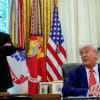

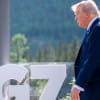
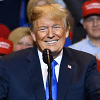
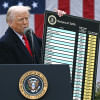

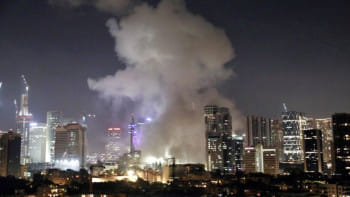
Comments